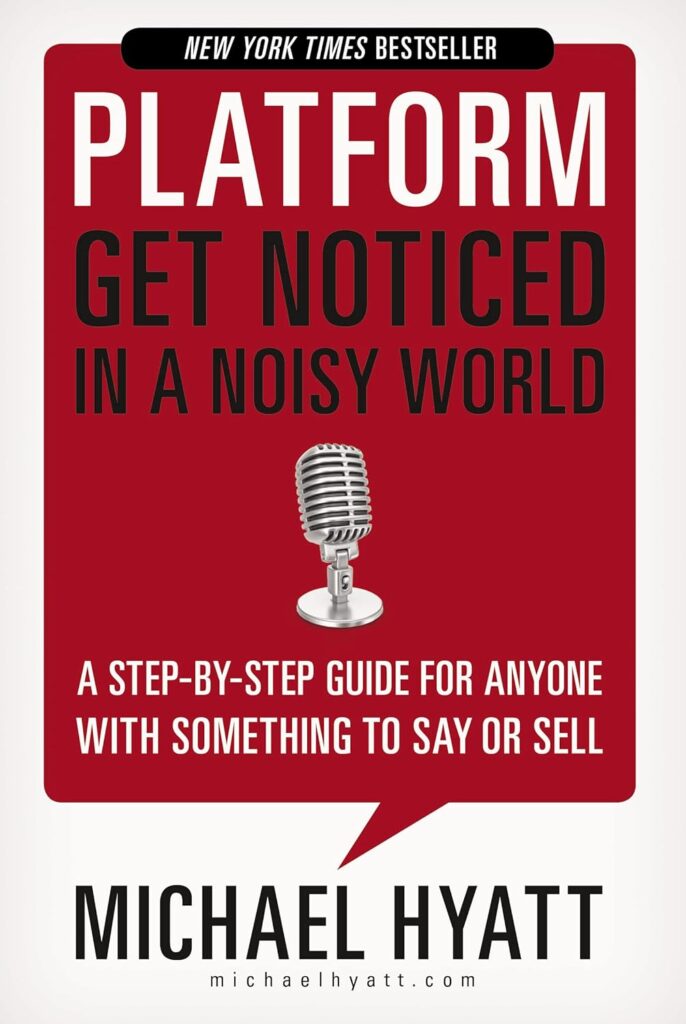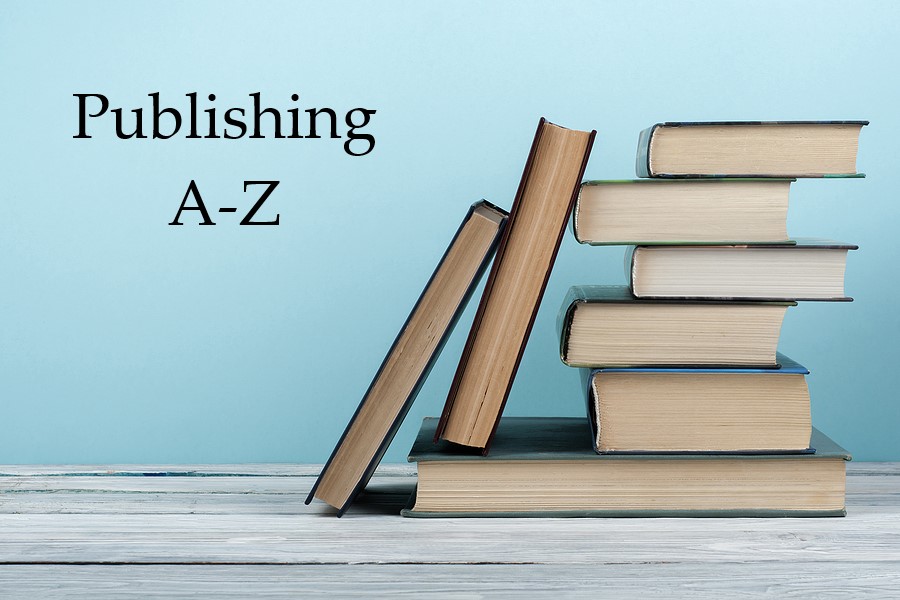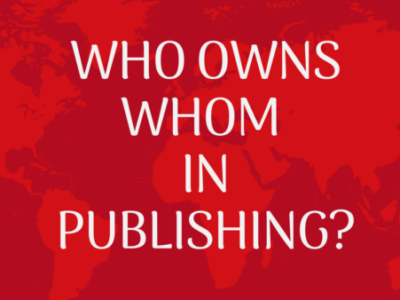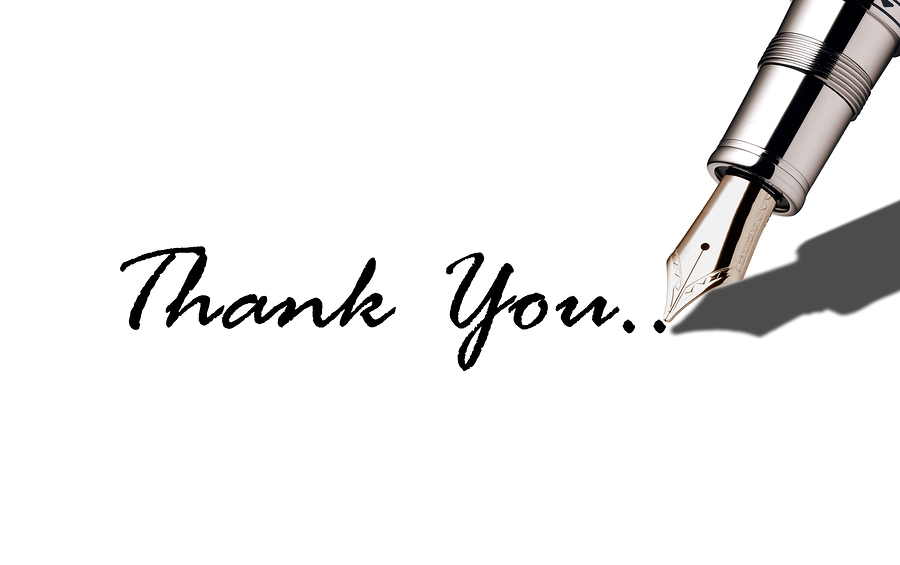[Note: The opinions and analysis expressed in this post are the author’s own and may not reflect the views and opinions of The Steve Laube Agency.]
You’re probably tired of hearing that you need a large platform to be a successful author. For many authors, agents, and publishers, having a large platform is equivalent to having a large social-media following.
If you’ve been listening to the Christian Publishing Show for any length of time, or if you’ve listened to my other podcast, Novel Marketing, you know that social media doesn’t necessarily mean you have a platform. Nor does it mean you’ll sell more books than someone not on social media.
In fact, sometimes people sell more books by spending less time on social media. There’s an ongoing debate about whether social media actually connects you with your readers.
I’ve been talking about this debate for years. I’ve also been talking about the problem of authors engaging with people online, believing they are talking to a human on the other side of the keyboard. More often than not, they were actually engaging with bots. People don’t want to hear about that possibility.
Then, chat GPT was made available to the public; and suddenly, everyone believed they might be interacting with bots, rather than real readers.
How do authors navigate the platform predicament?
Authors hear me say, “Your social-media following isn’t very important.” But when they talk to a literary agent or publisher, those people care about social-media numbers.
I recently interviewed Mary DeMuth, literary agent, international speaker, and author of nearly 50 books. Her popular podcast, Pray Every Day, has been downloaded over 4.5 million times. Mary and I had a very interesting conversation about whether authors need to be on social media.
Thomas: You wrote a viral blog post titled Why Author Platform Is Broken and What to Do About It.
Why is author platform broken?
Mary: In the post, I traced the Christian publishing industry from the early 2000s until now, which is how long I’ve been in the Christian publishing industry.
When I started publishing in 2004-2005, I did not need a platform. I needed to be an excellent writer and write a great book. I had spent a long time working on becoming a great writer, and my first two contracts came right after I moved to France. Although I had trepidation because my publishing dream came true as I was moving across the world, it didn’t seem to be a problem.
From 2005 to 2007, people started talking about branding, and it became an important conversation.
-
- Who are you?
-
- What do you bring to the reader?
That conversation morphed into platform. Michael Hyatt, former president of Thomas Nelson, wrote a book titled Platform, and that was the zeitgeist of that era.
Hyatt’s book gave authors all sorts of advice about how to grow a following.

Thomas: When his book launched, I remember doing a webinar with you and Michael. We were teaching courses for authors and brought Michael on to teach about platform. We were in the hustle and bustle back in 2012.
Mary: We were, but that has morphed into a different metric. The metric used to be about how you connect with readers and how you sell books, as in sharing your sales formula with a publisher. That metric has morphed into “How many people follow you on social-media platforms, and what is that combined number?”
I was an author before I was an agent, and I jumped through those hoops. I’ve been an agent for over three years, and I’ve been watching how this has affected me as an author, as well as the authors I represent. I’ve also seen that those social-media-following numbers don’t necessarily result in sales.
I’ve talked to many industry professionals who will back me up on this but often are not public about it. Being the pot stirrer that I am, I decided to write a post to talk about what platform has become because there are a lot of exhausted authors out there. We’re giving them information that is taking away from them, rather than adding to them.
I don’t necessarily have the perfect solution, but the questions must be asked.
Thomas: Your article has over 100 comments, so it struck a nerve. You pointed out that the platform pressure is higher in Christian publishing than in secular publishing.
Why is the platform pressure higher in Christian publishing than in the general market?
Mary: I think the pressure is particularly intense for nonfiction.
Thomas: The pressure is high for both fiction and nonfiction; but in the secular world, there’s very little pressure for fiction writers to have a platform. Secular publishers only care whether the book is well written.
But the religious publishing world cares about platform. Many novelists seeking to publish in the Christian market have been rejected because they don’t have a platform. Platform is even more important in nonfiction.
Proposed Conspiracy Theory
Some agents and editors will blame platform when, in reality, they don’t want to publish the book because they don’t like it. They might not like the book’s theology or politics, or maybe they don’t think it’s well written.
Each of those reasons is a judgment call by the agent or editor. A Christian agent or editor doesn’t want to feel like they’re judging, and they’re trying to be agreeable without saying no. Since they’re trying to be diplomatic, they can blame platform. It’s a nice way of saying no without having to say it.
But that’s just part of the problem.
When I started attending conferences in 2006-2007, most editors and acquisitions agents had theology backgrounds. Many had attended seminary. As they retired, they were replaced by people with a business background–people like me.
Then, many of these publishing houses that Christians had owned for decades or centuries started being sold to secular conglomerates that were not owned by Christians.
For instance, large publishers like Zondervan and Thomas Nelson were sold to HarperCollins. After they were sold, the team that worked at those companies turned over almost completely. While some of the new team members are Christians, they are a different kind of Christian than the ones who worked there in the 2000s. They’re more theologically and politically progressive. They’re more likely to live in a big city and have little in common with those who buy Christian fiction. Christian fiction readers are conservative. They’re more likely to be rural and more likely to have voted for Trump.
The current staff at Christian publishers owned by larger conglomerates aren’t able to predict what will resonate with those conservative, rural readers because they’re not in that group. They don’t live in that part of the country and don’t attend the same kinds of churches that conservative readers attend.
Since they don’t understand or know the readers, they’re forced to use platform as a proxy for resonance. They can’t make the judgment call on the writing itself because they lack perspective. A New York City editor rarely knows what a rural Alabama Christian romance reader wants in a story. They have to guess based on which authors have a lot of Facebook followers.
That’s my conspiracy theory.
Mary: I’m going to push back a little bit.
I think you’re probably right about the fiction side of things.
My experience with nonfiction publishers in New York versus Christian is that there’s more pressure on the Christian space to have a platform. Publishers have sales thresholds to achieve, so they’re risk averse. At many of those houses, the first thought is whether a book will make money.
In the olden days, people like Eugene Peterson could get published because editors were more theologically adept and recognized beautiful writing. So they were willing to take a risk on it. Their first thought was, “I want to build the Kingdom. I want to publish something that’s going to change the world.”
The difference between a Christian publisher owned by a New York house and just a plain secular New York publishing house is that the plain New York house has more money, ability, and understanding for the importance of marketing and sales for those authors they sign.
Almost 100% of the marketing and sales burden is placed on nonfiction authors in the Christian space; and when the book doesn’t sell, the author is blamed.
Thomas: It’s also because they’re based in New York, and there’s a disconnect between publishers and readers. Publishers don’t know how to do the marketing.
They’re not doing a good job for their own New York books, either. I had a fascinating conversation with Jane Friedman on my other podcast, Novel Marketing, where we reviewed the Penguin Random House Department of Justice Trial.
The trial revealed that things in New York aren’t great. Publishing companies are not growing, and most of their published books fail. Sixteen percent of Big Five books fail to sell more than a dozen copies.

You read that right. It’s mind-blowing. These houses are sustained by sales from their massive backlists, not because they are good at predicting where the market is going and what the typical reader wants.
New York houses also seem to be very politically motivated. They’re favoring a specific kind of political message and author. They almost don’t care about how marketable the book is as long as it checks certain boxes. That’s a new approach because New York historically has been very financially motivated.
The fact that it’s not working is interesting. You’d think an author with a million social-media followers would sell a lot of books. Billie Eilish had about 100 million followers on social media, and her book failed.
We’re learning that a following on social media does not guarantee success for the book.
Mary: I talked to an editor in a Christian house who had a similar situation. They had an author with hundreds of thousands of Instagram followers, and the book tanked. I asked her why she thought it happened.
She said, “I think it’s because there’s no commitment in scrolling Instagram.”
If I want design or recipe ideas, I will just keep scrolling. I don’t need to hold a book to get those ideas. In fact, I don’t really want a book because it will be out of touch in a few years. People are used to receiving free content, and they’re not connected to the person they’re following because they’re following a bunch of designers.
Instagram followers may or may not see their posts, and they don’t have an established relationship.
Contrast that relationship with the people on your email list. If people trust you enough to be on your email list and buy from you, it’s because they’ve established a relationship of trust.
Since social media is so fickle and constantly changing, it’s nearly impossible to have a relationship of trust there.
Thomas: Plus, there’s no good mechanism to buy. Even if I trust and follow you on Instagram, there’s no buy button where I can purchase your book when you post about it.
There is a lot of friction between me seeing your post and purchasing the book. I have to leave the platform, say no to the dopamine hit of seeing the next post, open a separate app, type the title of your book with my thumbs into Amazon, go to the sales page, click order, and wait for it to arrive in the mail.
That’s a lot of friction.
At each point of that process, a large percentage of people will drop out before they have a chance to buy. The more steps you have in your sales funnel, the smaller the percentage of people who will complete the checkout process. A fraction of people who trust you will complete that process and buy your book.
What happened to the platform of 2012?
Thomas: Michael Hyatt’s method worked better in 2012 when he wrote his book because the algorithms in those days sorted posts based on recency and encouraged virality.
After the 2016 election, the algorithms were shifted to discourage virality because there was a concern that misinformation could spread like a virus.
Today, it’s hard for anything to go viral on social media because of how the algorithm has been tweaked.
Now, the algorithm is becoming the thing that people like. People often say, “I’m a big fan of TikTok,” but they won’t say they’re fans of anyone specific on TikTok because they’re just scrolling. It’s like flipping through channels on the television. The TikTok algorithm could make someone disappear, and you may not even notice they’re not in your feed for weeks because you’re not connected with that creator. You’re connected with the algorithm.
The algorithm can shape your understanding of the world, your desires, and your actions.
As a human content creator, you don’t have control over that.
All the platforms are trying to become like TikTok. Instagram is pushing reels, trying to recreate the TikTok experience. YouTube and Facebook are doing the same. As users learn to follow algorithms, rather than humans, an author’s ability to reach humans for free diminishes.
Mary: Yes, I agree. To be strategic, I have to ask, “How can I use these fleeting platforms to build my email list, direct people to my website, and maximize my SEO?”
The girls from Writing Off Social are talking about this as well. We can kind of pretend the algorithm doesn’t matter because, in a way, it doesn’t. There are other ways to accomplish these goals.
As an agent, I look at proposals all the time. I do look at platform because I have to. The editors I’m pitching are looking for platform, so I can’t just discount it.
But I’m also looking at deeper things.
One of my clients self-published a book and sold over 10,000 copies.
Signing him was an easy yes for me because he presented hard data. I signed another client who’s not great on social, but she has sold tens of thousands of her traditionally published books. When I pitched her to publishing houses, five houses were fighting over her because she presented hard data.
If an author can give me some hard data, I don’t care as much about how many people follow you. Sales data moves the needle and is more interesting to me.
Thomas: I like the email newsletter as a mechanism because it indicates that an author has been faithful in the little things. A list of email subscribers indicates you’ve built trust with people, and they know who you are. They’re not just scrolling past your videos.
If people don’t trust you with their email address, they won’t trust you with their money.
There are other ways to build that readership in the real world. Tricia Goyer does a great job selling books directly to homeschoolers at homeschool conventions.
There’s a whole ecosystem of authors selling tens of thousands of copies of their books directly to readers. Those sales aren’t tracked by BookScan or credit cards. It’s very easy to discard the reality of those sales simply because NPD BookScan says there are no sales at conferences. Of course their numbers show zero sales because they don’t track sales there!
An author who speaks for big audiences typically sells lots of books at the back of the room after the talk. If you give an engaging talk, you’ll sign and sell books for an hour afterward as a line of people pays full price for your book.
As you said, once you have sales numbers, whether they’re good or bad, nobody really cares about your platform. If your last book sold 50 copies, your million followers on TikTok won’t matter to a publishing house because your last book only sold 50 copies.
If your last book sold 50,000 copies, it doesn’t matter to publishers that you’re not on Facebook. They’re still going to bid for your book because your last book sold 50,000 copies.
Ultimately, these businesses are trying to sell books. Show them you’ve been faithful in the little things. Prove that you have resonance with readers and that readers already want what you’re creating. There are many ways to do that. Social media isn’t the only way.
The Myth of Becoming Famous on Social Media
Social media is not a good way to get famous. People who are famous on social media and can leverage their following to move sales numbers are people who became famous for something else. Famous actors, athletes, and authors who were successful before social media can sometimes move the sales needle on social.
But correlation is not causation. Just because somebody has a lot of followers on social media doesn’t mean that they got those followers by being good at social media.
Successful authors often burden new authors by saying, “I’m popular on social media, so you need to be too.” They neglect to explain that they got popular 20 years ago because they had a bestselling book that brought those followers to social media. That strategy isn’t reproducible for someone starting today.
Mary: I’ve seen that too. I signed a delightful new author who is a good friend of someone exceptionally famous in the Christian writing sphere. When my client signed with me, this famous woman said, “The very first thing you need to do, above all other pieces of advice, is to start buying followers.”
I was so angry at her advice. First, you can only buy followers if you’re rich. Second, they’re fake; third, those aren’t followers. It’s a strategy that creates a facade of reality that means nothing.
When I look at people’s numbers, I have to look at engagement because if they’re followed by bots that they bought, there won’t be any engagement there. That fake following is just a piece of fluff that means they spent their money on something dumb.
Please don’t buy followers.
Real and Digital Friends
Thomas: Today’s bots can mimic engagement. They can “like” your posts and generate comments based on your posts. Even the engagement, which was more genuine a few years ago, is now probably fake.
The social media world is just lies. There’s no compass. There’s no true north to tell you what’s created by humans and what’s not. GPT can generate a better comment on your video or post than most humans typing with thumbs while on the toilet.
GPT always brings its best, but humans don’t. Sometimes, our comments don’t have correct punctuation or spelling, but GPT’s comments do.
The new bots can create as much artificial engagement as you want.
The phenomenon isn’t new, but it has only recently come to the public’s attention. In the 2008 presidential race, one candidate got onto a major party’s debate stage simply because he had a zillion Twitter followers. Only later did everyone realize they were bots. It seemed like he was hip with the young people, but he just had a handful of savvy marketers and an army full of bots.
What is real is what we see in real life. Your biggest advantage as an author is that you’re a human being and can interact with people in the real world.
We got dazzled by social media, and social media scratched that psychological itch for validation. Some people write because they want to feel validated and encouraged. Social media “likes” provide a form of validation and encouragement.
But Facebook friends aren’t the same as real-life friends. You can’t sleep on their couch. They didn’t like what you said. They clicked “like” under what you said. That’s not the same thing.
Mary: I recently had breakfast with someone I met through social media. She was a reader who messaged me a few times and lived nearby. We’ve met several times, and seeing that relationship develop has been fun. Social media provided the introduction, but I wouldn’t even remember her face or name if I hadn’t met her in person.
Many of us have face blindness because of social media. I don’t recognize people’s faces from a tiny profile picture; and if I’ve never met the person, I will never really know who they are.
That’s why I think we need to return to being with human beings, touching people one-on-one.
How many email addresses do you need to have?
Thomas: If you had a client with a robust email list of 10,000 to 15,000 subscribers, but they weren’t on social media because they had a moral or mental health objection, would the publisher care that they weren’t on social media?
In other words, would the robust email list outweigh the lack of social media?
Mary: The publisher would still care. They would still want to know if they had a presence and use the lack of presence on social media as a reason to say no. However, there is a threshold.
If an author has 50,000 email subscribers, it wouldn’t matter as much, but that email list number is always a moving target.
Another thing that’s hard to represent to publishers is an author who is dabbling in everything and has a high number of followers spread across small platforms in different places. You can present that total “wow” number, but it may not mean anything because they may not be engaged on any of those platforms.
Building a following is a lot like Eugene Peterson’s “long obedience in the same direction.” It is methodically being faithful in little things.
It’s also about the Kingdom, so you cannot measure by the world’s metrics.
Now, I understand that when I present a project to a publisher, I have to give them what they want.
Thankfully, we live in an era when we can always publish a book almost for free. If a book can’t be traditionally published for some reason, there’s always an opportunity for another way.
Thomas: None of the algorithms will give you heat if you don’t have big numbers to start with. I recommend finding that one platform you can focus on.
I like podcasting because there’s no algorithm between you and your reader. I also like blogging because there’s very little algorithm between the parties. Blogging and emailing are very symbiotic.
Substack basically merges blogs and emails. You can read Substack content on a website or in your inbox. You can do the same thing with your own website.
Podcasting, blogging, and emailing are the big three. Their common denominator is that they are not companies; they’re technologies. You can get that technology from rival companies. You don’t have to use Outlook or MailChimp. The competition means you’ll be treated as a customer.
If you don’t like your podcast host, you can move to another host and keep your subscribers. Same with your website host and your email service provider. These platforms treat you like a customer.
But if you don’t like Facebook and want to move to Twitter, you have to start over from scratch. You don’t own the relationship with your subscribers, so you’re vulnerable to being canceled. You can lose everything if you offend the wrong people on social media. But if your platform is built on email, podcasting, or blogging, it’s more secure.
One area where you and I differ, Mary, is how we advise authors who are being pressured by their publishers to do social media. I say, if you’re building your platform and have a large email list and your publisher is pressuring you to do social media, you don’t want that publisher as a partner. The pressure indicates they don’t understand marketing. They fundamentally don’t understand how to look at numbers and see what works because social media has not driven sales numbers.
In 2016, when I was the marketing director at Enclave, I could see that social-media numbers weren’t driving sales, and it’s only gotten worse since then.
You want a publishing house that can lift the water with marketing. If they can’t help you with marketing, and you still can’t get the sales data, then what have you gained?
Independently published authors have access to the marketing data and can make marketing decisions based on sales data.
In certain YA and some fantasy and romance genres, indie authors outsell the traditionally published authors. If you go to Christian YA, you’ll see S. D. Smith at the top of the list with more sales than all the traditionally published authors.
If you go to Christian fantasy on Amazon, you’ll see that indie author Brian Godawa has half the top ten books in any given week.
Traditionally published authors whose publishers don’t understand marketing and pressure authors to do things that don’t work are losing market share to savvy indies who know how to read a sales analytics report. Those indies know how to keep doing what’s working and stop doing what doesn’t.
Mary: I’ve had a few recent conversations with folks in the upper echelons in Christian publishing who quietly say, “You’re right. The social numbers don’t mean sales.”
I think it’s been easy to look at the social-media number because it’s a fixed number that publishers can see. It’s harder to analyze their email open rate or other data points that are harder to find.
Thomas: It’s the difference between accuracy and precision. That social-media number is very precise. I know I have exactly 10,231 followers on Facebook. Since it’s precise, I can put it in a spreadsheet, which seems accurate.
But in reality, many of those followers aren’t even people. They’re bots using me to launder some other thing. Some followers are humans, but the algorithm isn’t showing them the content.
Once you start walking through that number, you realize 10,000 isn’t really an accurate number, even though it’s very precise. I’m encouraged to hear that publishing houses are getting away from that.
A Shift in Secular Publishing Houses
In the secular world, Bloom Publishing was the bestselling romance house.
They publish a lot of erotica that Christians wouldn’t want to read, but they’re winning by giving their authors access to the sales data. They’re reinventing what it means to be a traditional publishing house. They’re recruiting successful indie authors and giving them a reason to go traditional.
Big advances do not wow indies. Indies want more control and access to sales data.
They want to know how many books sold on February 17th compared to February 16th. That’s how they can determine whether their big promo on February 17th was successful.
A traditionally published author typically can’t get the answer to that question.
That big promo could have been a massive hit or total failure, but you don’t know which. So, you just keep trying things, not knowing whether they work; and that is not the recipe for success.
If publishers are going to require authors to do the marketing, they have to give the data. If they won’t provide the data, then they need to do the marketing.
Asking somebody to drive down the road and not letting them look out the windshield is a recipe for failure.
What encouragement would you give to an author with 75 email subscribers who just heard you say 50,000 is the target?
Mary: One thing we do well at Mary DeMuth Literary is help all our authors work together to help build each other’s platforms.
We did a cross-promotion between 15 of our 40 authors, and each of us added 1,000 people to our lists.
Collaborating and connecting with other authors is a great way to build your list.
You’ve talked about creating something people want and giving it away. My best subscribers are people who listen to me live as a speaker. Those have been the most faithful followers. Some have been following me since 2005 because I deliver valuable content they can’t get anywhere else.
My congregation, so to speak, of readers that I’m shepherding via email is more interesting to me than my 20,000 followers on Instagram. I don’t know those Instagram followers, but I know my email list.
Thomas: Email is a richer interaction. People on Instagram click, but people who subscribe to your email newsletter email you back; and those replies are informative because you’re getting somebody’s real effort. They’ll write a paragraph or several. Sometimes, it’s their life story; and it’s very illuminating. I read every single one and try to respond as much as possible. That correspondence is a much richer connection, but it’s not nearly as rich as the connection in real life.
The more you can do to facilitate in-person connections, the better your relationships will be.
Christians belong to a very physical religion. You cannot confirm an elder of a church without touching them. You cannot be baptized without touching the water. You cannot take communion by posting bread and wine emojis in the chat on Zoom. That’s not real communion. How do you test the spirits? You ask if Jesus existed in the flesh.
It’s easy to get sucked into this virtual world and think it’s a substitute for the real thing.
The more we go back to church and fellowship with other human beings who follow Christ, and the more we interact with humans who don’t follow Christ, the more vibrant our spiritual walk and writing will be. Those human connections will also make your marketing more effective.
I’m saying this as a tech-savvy millennial who is the first to buy all the new technology. But my eyes are being opened to the importance of real-life interaction. That’s where the life-change happens, and that’s where the connections are formed.
Mary: I agree. That also gets back to my dissatisfaction with the megachurch model. It lets believers disconnect from the oikos of day-to-day communion with other believers.
Nobody grows in isolation. I write books about growing in Christ, but I grow better if I read a book and talk about it or pray through it with someone. If it’s heretical, you have to talk about it. You need to process it with a live human being.
What kind of author are you looking to represent?
Mary: As an agent, I am looking for people I like. It’s really important to me that I get along with the authors I represent. But I’m also looking for people who have the mindset of the Kingdom, who like to push against the barriers of the status quo of what American Christianity has become. I want to work with people who push against the consumeristic church culture that is devoid of discipleship.
I want to see new voices with great writing. I want to see people who are connected to their audiences and know how to serve them.
If you look at my authors on MaryDeMuthLiterary.com, you’ll see authors who you may not know yet, but they are doing beautiful things for the Kingdom; and God is blessing that with changed lives, rather than in numbers.
We’re also blessed by the relationships we have within our literary agency because we’re all connected.
What can we do to turn the tide in publishing?
Thomas: If you’re an industry professional, I encourage you to start pushing back by asking for numbers on what works. Ask, “How do you know that’s true?” and “How do you know that works?” You’ll find that the people pushing for social media cannot give you numbers to substantiate their methods; and very quickly, their whole argument crumbles.
I’ll end with an illustration. One of my sons is a bit of a free spirit. He was playing on the playscape at church and doing one thing while other children were doing something else. The other children came to me complaining that he was not participating in the game they put together.
They said, “He’s doing it wrong.”
I said, “Who says he’s doing it wrong?”
They said, “He’s breaking the rules.”
I said, “Whose rules?” It was an instance where they were trying to pressure him into doing what they were doing, but he didn’t want to do it with them.
If you’re facing peer pressure in a corporate or religious setting, ask questions.
-
- Who says?
-
- What’s your proof?
-
- What evidence do you have?
Hopefully, they’ll say, “We found a way to make it work, and here are the numbers.” But I think you’ll find that they don’t have the numbers. They simply believe everyone else is doing it.
We need more people to say that the emperor has no clothes and that the social media emperor is naked. It’s time to stop complimenting each other about how beautiful his clothes are when he’s not wearing any.
Mary: I want to bring people freedom.
I also don’t want to misrepresent myself. I do have to look at numbers as a literary agent. However, I would much rather an author spend their deep work on their deep writing, rather than throwing their “pearls before swine” on social media. It’s so shallow there. You’re throwing your most beautiful work to bots and people who will consume it quickly. When you commit to the deep work of putting your words on the page, you facilitate a more thoughtful interaction with your reader.
You can find Mary’s submission guidelines at MaryDeMuthLiterary.com.
Featured Patron
Deborah Raney, author of Breath of Heaven
Married life in a remote village on the mission field was supposed to be an adventure for Natalie and her husband, David. But when their village in South America is invaded, and a young mother goes missing, their faith and love will be pushed to the limits. Join Natalie and David as they fight for their lives and make decisions that will impact generations to come in the gripping final installment of the Camfield Legacy series.
If you enjoyed the previous books, Beneath a Southern Sky and After the Rains, you won’t want to miss this heart-racing conclusion. Buy now before the price changes!












